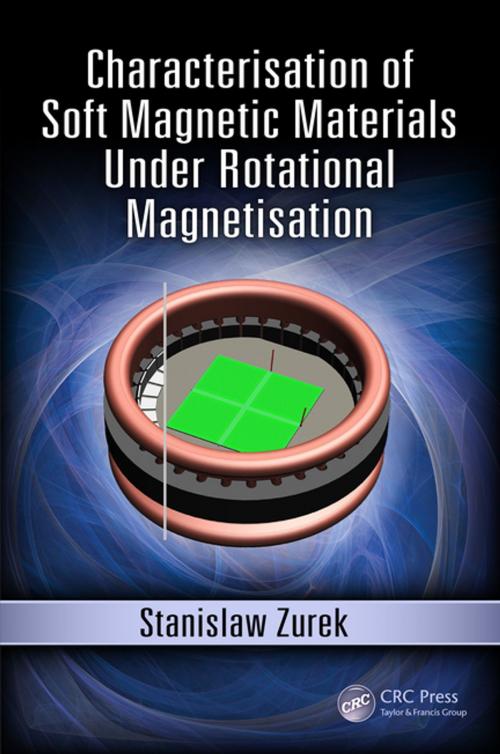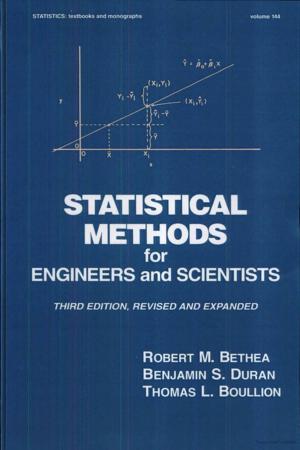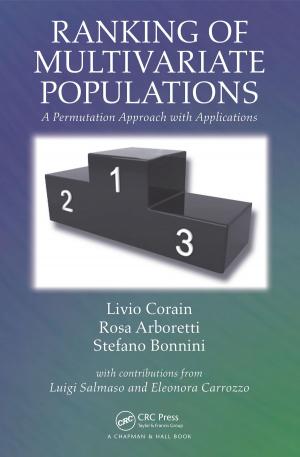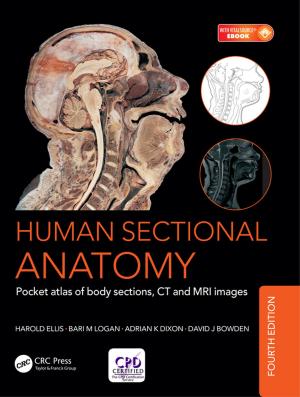Characterisation of Soft Magnetic Materials Under Rotational Magnetisation
Nonfiction, Science & Nature, Technology, Microwaves, Material Science, Science, Physics, General Physics| Author: | Stanislaw Zurek | ISBN: | 9781351397070 |
| Publisher: | CRC Press | Publication: | November 22, 2017 |
| Imprint: | CRC Press | Language: | English |
| Author: | Stanislaw Zurek |
| ISBN: | 9781351397070 |
| Publisher: | CRC Press |
| Publication: | November 22, 2017 |
| Imprint: | CRC Press |
| Language: | English |
The book presents practical aspects related to the measurement of rotational power loss in soft magnetic materials. The book furthermore focuses on practical aspects of performing such measurements, the associated difficulties as well as solutions to the most common problems. Numerous practical aspects, hands-on experience, and most commonly encountered pitfalls are heavily discussed in the book. The text begins with introduction to magnetism, then follows with definitions of measurement methods of rotational power loss from physical viewpoint. Two chapters describe and detail the various sensors which can be employed for such measurements as well as all the aspects of designing, making, and using a magnetising apparatus. A synthesis of the likely optimal design of a magnetising apparatus is also given, preceded with the full reasoning based on all the research carried out to date. Characterisation of Soft Magnetic Materials Under Rotational Magnetisation serves as an excellent starting point for any student having to perform magnetic measurements under rotational magnetisation, but also under 1D, 2D or 3D excitation. Because the methods, sensors, and apparatus are extensively discussed it will also be a great reference for more senior researchers and experts in the field. There is a whole chapter devoted to analysis of measurement uncertainty. This subject is rarely published for magnetic measurements, which makes it more difficult for all researchers to understand the concepts and methodology used in uncertainty estimation. This chapter not only introduces the whole subject, but also provides multiple step-by-step examples which can be easily followed, from very simple cases to much more complex ones. All equations are presented with full SI units which greatly helps in practical application of the presented methodology. Each chapter is written in such a way that it can be studied on its own, so that the reader can focus only on the specific aspects, as required.
The book presents practical aspects related to the measurement of rotational power loss in soft magnetic materials. The book furthermore focuses on practical aspects of performing such measurements, the associated difficulties as well as solutions to the most common problems. Numerous practical aspects, hands-on experience, and most commonly encountered pitfalls are heavily discussed in the book. The text begins with introduction to magnetism, then follows with definitions of measurement methods of rotational power loss from physical viewpoint. Two chapters describe and detail the various sensors which can be employed for such measurements as well as all the aspects of designing, making, and using a magnetising apparatus. A synthesis of the likely optimal design of a magnetising apparatus is also given, preceded with the full reasoning based on all the research carried out to date. Characterisation of Soft Magnetic Materials Under Rotational Magnetisation serves as an excellent starting point for any student having to perform magnetic measurements under rotational magnetisation, but also under 1D, 2D or 3D excitation. Because the methods, sensors, and apparatus are extensively discussed it will also be a great reference for more senior researchers and experts in the field. There is a whole chapter devoted to analysis of measurement uncertainty. This subject is rarely published for magnetic measurements, which makes it more difficult for all researchers to understand the concepts and methodology used in uncertainty estimation. This chapter not only introduces the whole subject, but also provides multiple step-by-step examples which can be easily followed, from very simple cases to much more complex ones. All equations are presented with full SI units which greatly helps in practical application of the presented methodology. Each chapter is written in such a way that it can be studied on its own, so that the reader can focus only on the specific aspects, as required.















